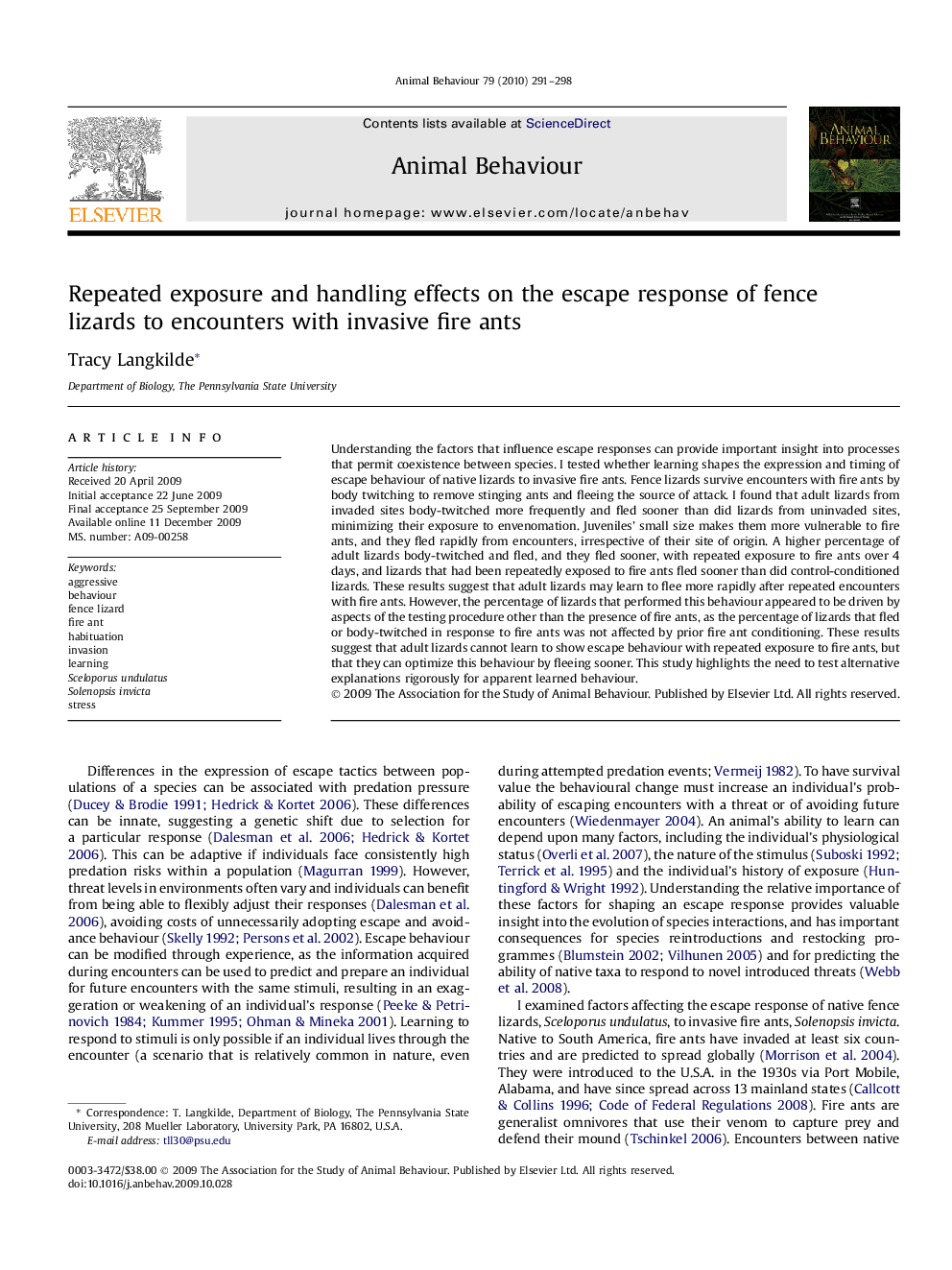| کد مقاله | کد نشریه | سال انتشار | مقاله انگلیسی | نسخه تمام متن |
|---|---|---|---|---|
| 2417473 | 1104320 | 2010 | 8 صفحه PDF | دانلود رایگان |

Understanding the factors that influence escape responses can provide important insight into processes that permit coexistence between species. I tested whether learning shapes the expression and timing of escape behaviour of native lizards to invasive fire ants. Fence lizards survive encounters with fire ants by body twitching to remove stinging ants and fleeing the source of attack. I found that adult lizards from invaded sites body-twitched more frequently and fled sooner than did lizards from uninvaded sites, minimizing their exposure to envenomation. Juveniles' small size makes them more vulnerable to fire ants, and they fled rapidly from encounters, irrespective of their site of origin. A higher percentage of adult lizards body-twitched and fled, and they fled sooner, with repeated exposure to fire ants over 4 days, and lizards that had been repeatedly exposed to fire ants fled sooner than did control-conditioned lizards. These results suggest that adult lizards may learn to flee more rapidly after repeated encounters with fire ants. However, the percentage of lizards that performed this behaviour appeared to be driven by aspects of the testing procedure other than the presence of fire ants, as the percentage of lizards that fled or body-twitched in response to fire ants was not affected by prior fire ant conditioning. These results suggest that adult lizards cannot learn to show escape behaviour with repeated exposure to fire ants, but that they can optimize this behaviour by fleeing sooner. This study highlights the need to test alternative explanations rigorously for apparent learned behaviour.
Journal: Animal Behaviour - Volume 79, Issue 2, February 2010, Pages 291–298